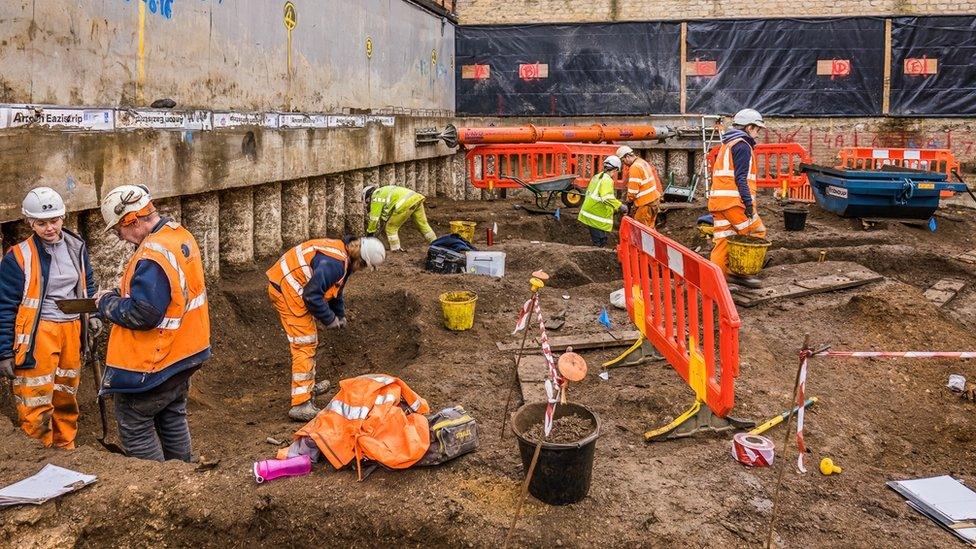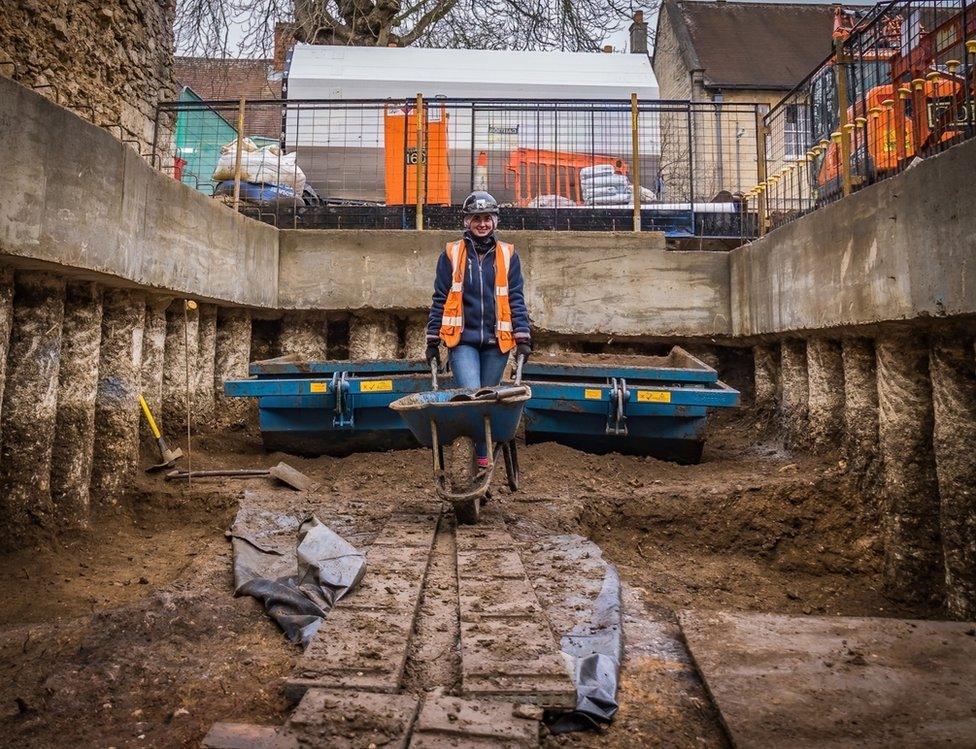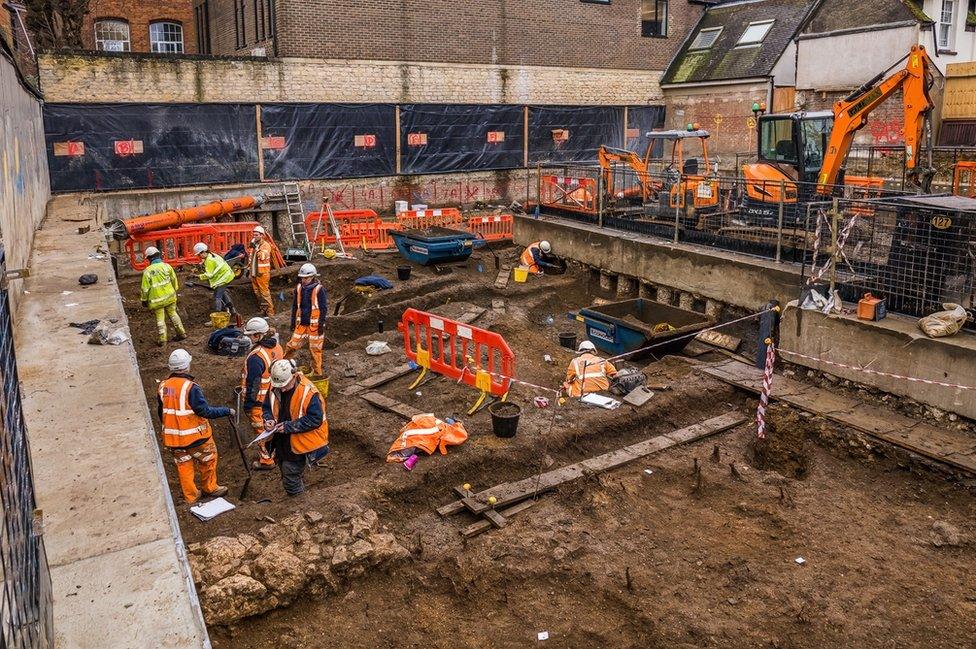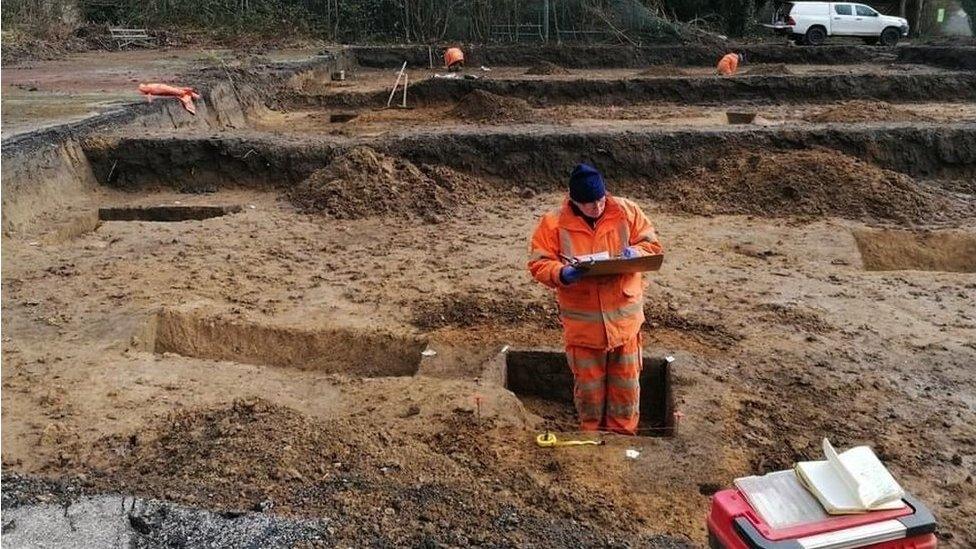Oxford University 'lost' college discovered during excavations
- Published

Thirty student flats are being developed at Brasenose College's Frewin Annexe where the college was found
A "lost" Oxford University college has been unearthed during the construction project for new student flats.
The former St Mary's College was founded in 1435 but had already fallen into disrepair 100 years later.
A team from Oxford Archaeology discovered a massive limestone wall foundation, butchered animal bones and decorated floor tiles.
Construction firm Beard is developing 30 student flats at Brasenose College's Frewin Annexe.
The ill-fated St Mary's College was to be a base for Augustinian canons studying in Oxford.
A two-storey college chapel and library was built, but construction was very slow.
Cardinal Thomas Wolsey tried to speed things up but was later accused of treason by King Henry VIII and died.
The college further faded into obscurity after the Dissolution of the Monasteries.

A team from Oxford Archaeology are excavating a series of pits
Archaeologists have found a wall believed to have supported one of the college's stone buildings.
They are also excavating a series of pits where disposed animal bones and charcoal suggest the kitchens were nearby.
Other items include a 17th Century stone flagon - drinks container, a bone comb and a medieval long cross silver penny.

A two-storey college chapel and library was built at the site
The site has been occupied since the late 11th Century and was once the location of a high status Norman house.
Ben Ford, senior project manager at Oxford Archaeology, called the remains a "unique and fascinating part of Oxford".
"We are hoping to shed light not only on the layout of the lost college of St Mary's, but also discover evidence that tells us about the lives of some of medieval Oxford's most powerful Norman families who probably lived at the site," he said.
He added: "If we are really lucky, we may uncover signs of even older everyday life, from Oxford's earliest years when it was first built as a heavily-defended town on the Thames, guarding the border between Saxon and the Viking held lands."

Follow BBC South on Facebook, external, Twitter, external, or Instagram, external. Send your story ideas to south.newsonline@bbc.co.uk, external.
Related topics
- Published31 January 2022

- Published11 October 2021
